Let’s be real: most jobs are enough of a grind without having to put up with backstabbing colleagues, toxic bosses, shifty HR managers, and that weird guy in accounting who always forces pics of his pet iguana on you in the break room.
One person turned to an online community to share their story of one panicky supervisor’s absurd order gone horribly wrong and the department-wide fallout that ensued. Tuck into this tasty tale of malicious compliance at its finest.
More info: Reddit
Most people will agree that their jobs are less than ideal, and uptight bosses can make them even worse

Image credits: pixaflow / Freepik (not the actual photo)
A lab technician at a hospital described how their supervisor issued a department-wide order that staff do everything “by the book” after a visit from state inspectors
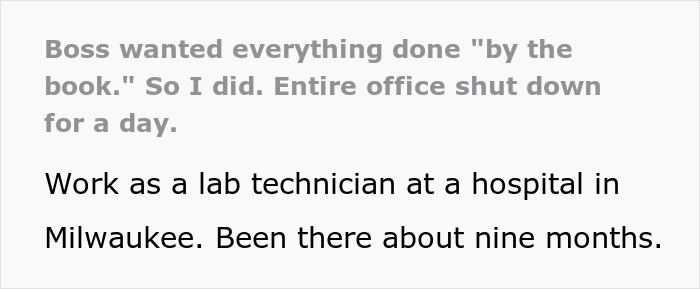
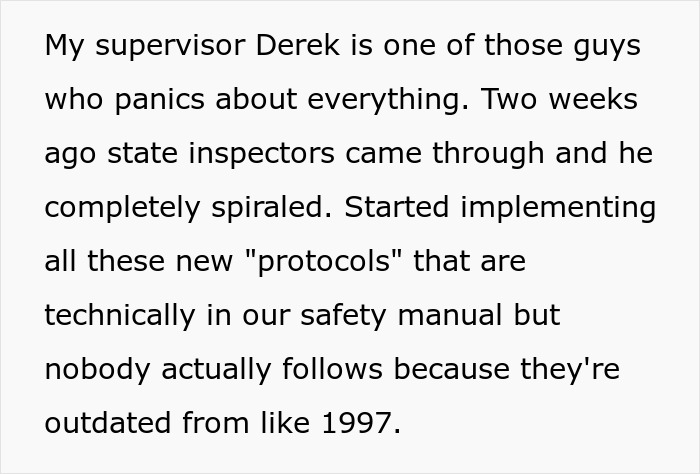
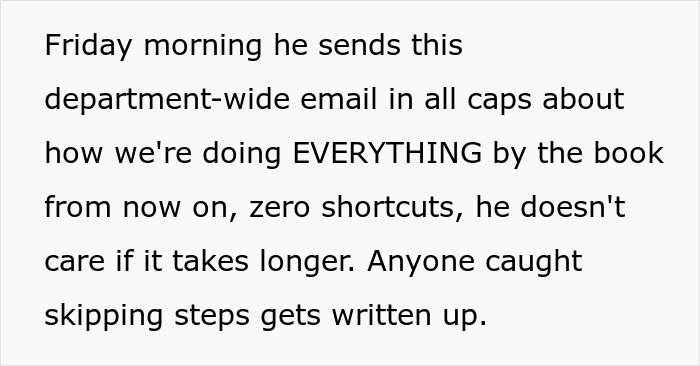

Image credits: EyeEm / Freepik (not the actual photo)
The problem with his demand was that, if everyone followed the strict protocols, no matter how long it took, it would slash the lab’s capacity




Image credits: freepik / Freepik (not the actual photo)
When the supervisor walked by the lab technician later and asked them why they weren’t running samples, they pulled out the protocol, his email, and explained the math

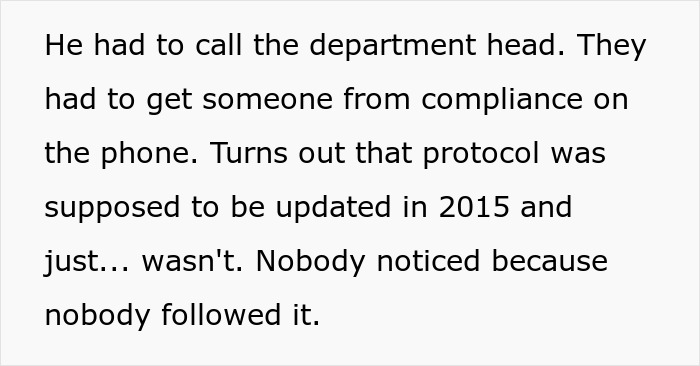
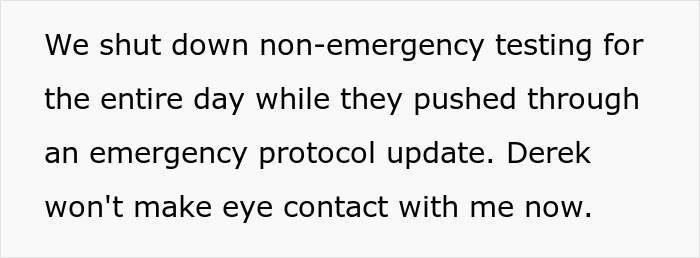

Image credits: Any_Effective8727
Red-faced, the supervisor had to call the department head and get compliance involved, which ended up shutting down the lab for an entire day
The original poster (OP), a hospital lab tech in Milwaukee, shared how their supervisor, “Derek”, is the human embodiment of a caffeine overload. When state inspectors visited, he panicked and suddenly decided the entire department had to start following every dusty, outdated rule from their 1997 safety manual to the letter.
Derek blasted an email in all caps demanding zero shortcuts. If the manual said to do it, everyone had to do it, no excuses, and at risk of punishment for non-compliance. Except the manual required each machine to undergo eight full hours of UV sterilization between uses. The lab only has six machines and processes around 40 tests a day.
So, OP calmly followed the rules. They started the UV cycle and waited. When Derek swung by demanding to know why no samples were running, the tech simply pointed to his email and the manual. Reality hit Derek like a ton of bricks: by following the rules exactly, the lab could run three tests. Total. For the whole day.
Cue frantic calls to leadership, compliance, and probably Derek’s therapist. The entire department had to shut down non-urgent testing until a new protocol was rushed through. Apparently, Derek hasn’t made eye contact with OP since, but at least one coworker honored the master of malicious compliance with a free coffee.

Image credits: freepik / Freepik (not the actual photo)
Honestly? It’s probably part of Derek’s job to make sure the lab is running according to the right protocols, so the whole shutdown is kinda on him. Stress, however, makes managers do strange things, and sometimes employees end up just doing what they’re told, even if it makes no sense. Welcome to malicious compliance.
According to the pros over at Indeed, it can be tricky to pinpoint motivations for malicious compliance, especially if an employee denies any accusations of it. Sometimes they might act out because they want to make it clear that some workplace policies are inefficient, or they want changes to be made.
Whatever the intention, malicious compliance can be a complex issue for employers to tackle and usually demonstrates a lack of communication between an employee and their management. It also creates frustrations for a business and can have expensive consequences, such as friction within teams and missed targets.
So, how do managers avoid this silent threat to the bottom line? The experts at BambooHR say one of the best things you can do is listen to your employees. Ensure you regularly touch base with your teams, collect individual feedback, and use those insights to create a positive culture. This continuous feedback loop lets your employees know you value their time and respect their experience on the frontlines.
If following the rules shows how broken they are, well, that’s just workplace justice doing its thing, right? OP’s quiet rebellion should be a warning to any managers out there – doubling down on the rules before checking in with your people can backfire. Fast.
What do you think? Was Derek just trying to stick to the rules, or did his incompetence catch up to him? Share your thoughts in the comments!
In the comments, readers agreed that Derek wasn’t the issue, and blasted the Milwaukee hospital for the safety risks of not keeping their protocols regularly updated

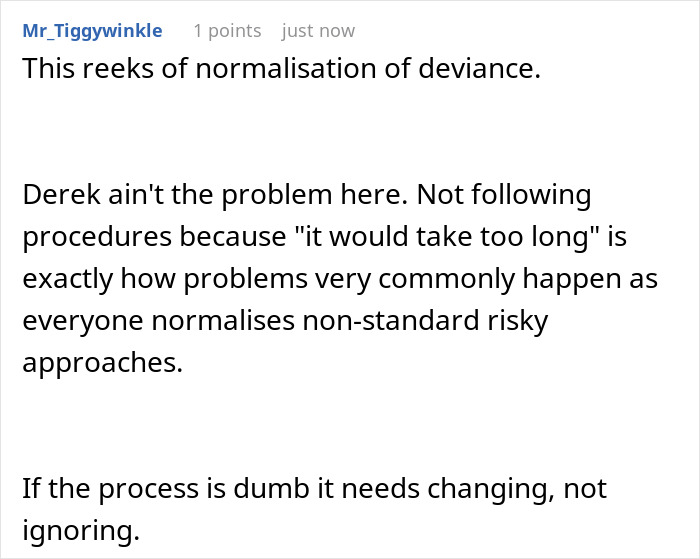
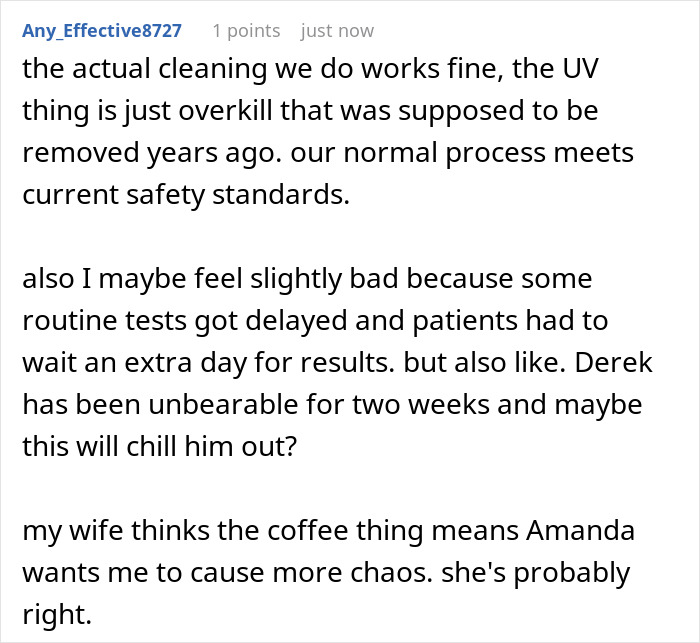
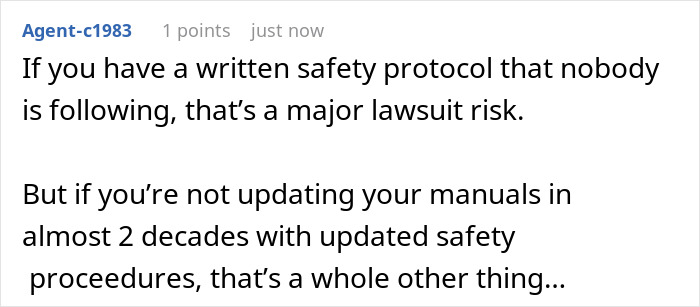



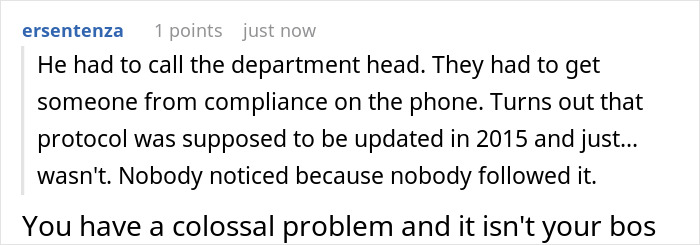

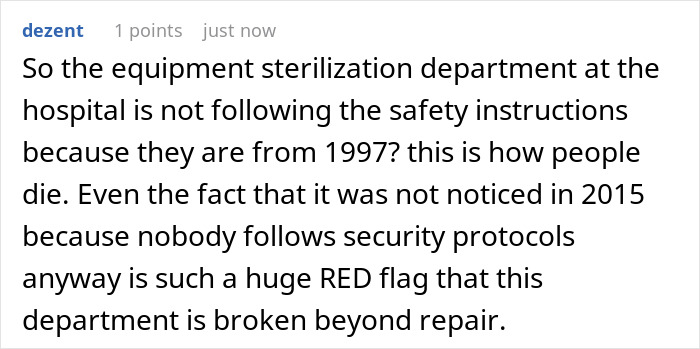
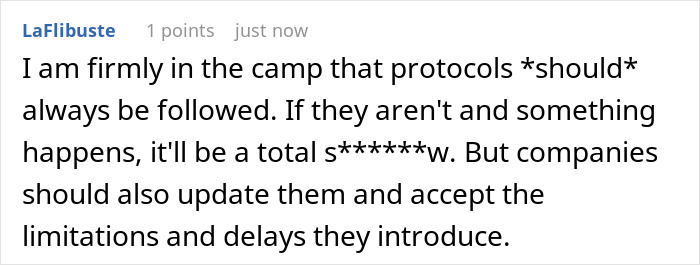
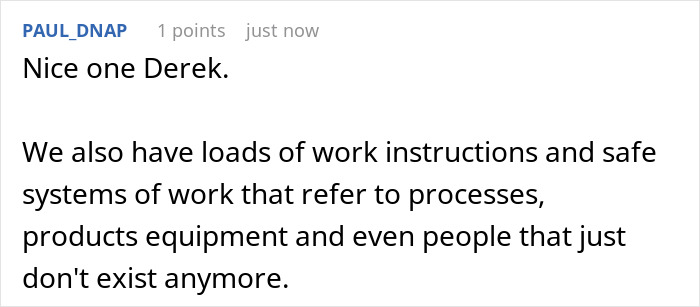
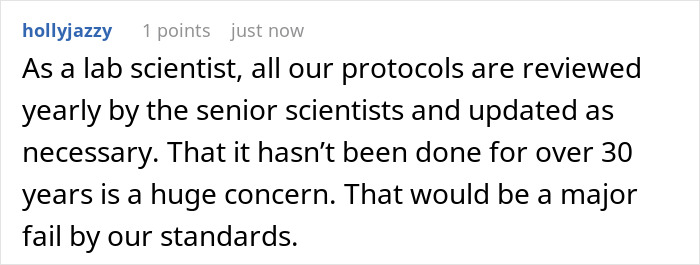
 Follow Us
Follow Us





